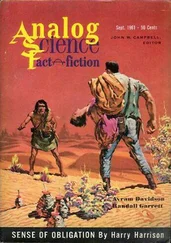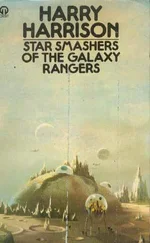Soft chimes rang.
'Dr Haends, please,' said a woman's gentle, capable voice.
Out he came, emerging from the universal substrate with his white gloves and gold-topped ebony cane. His tailcoat had a velvet collar and five-button cuffs, and down the outside leg of his narrow black pants ran a black satin stripe. His hat was on his head. His shoes, which Seria Mau had never seen, were chisel-toe patent leather dancing pumps. Hat, shoes, suit, gloves and cane, she saw now, were made of numbers, crawling so thick and fast across one another they looked like a solid surface. Was the whole world like that? Or was it only Dr Haends?
'Seria Mau!' he cried. He held out his hand. 'Will you dance?'
Seria Mau flinched away. She thought of the mother, leaving her to face things without a word of help. She thought of the father and the sex things he had wanted her to do. She thought of her brother, refusing to wave to her even though he knew he would never see her again.
'I never learned to dance,' she said.
'Whose fault was that?' Dr Haends laughed. 'If you won't play the game, how can you win the prize?'
He gestured around. Seria Mau saw that they were standing in the magic-shop window, a little-girl cultivar in a wedding dress and a tall thin man with a thin moustache and lively blue eyes. All around them were stacked the things she had seen in her dreams-retro things, conjuror's things, children's things. Ruby coloured plastic lips. Feathers dyed bright orange and green. Bundles of silk scarves that would go into the top hat and hop out as live white pigeons. There were hanks of fake liquorice. There was a valentine's heart which lit itself up by means of loving diodes within. There were 'X-Ray Specs' and elevator shoes, trick eternity rings and handcuffs you couldn't take off. They were all the things you wanted when you were a child, when it seemed there would always be more in the world and always more after that.
'Choose anything you want,' invited Dr Haends.
'All these things are fake,' said Seria Mau stubbornly.
Dr Haends laughed.
'They're all real too,' he said. 'That's the amazing thing.'
He let go of her hand and danced elegantly about, shouting, 'Yoiy yoiy yoiy!' Then he said:
'You could have anything you wanted.'
Seria Mau knew it was true. Full of panic, she fell away from this idea in all possible directions, as if from the highest ledge in the universe. ' Leave me alone! 'she screamed. The ship's mathematics-which had been Dr Haends all along, or half of him at least-sent her to sleep. It had a quick look at some of the other parts of its project (this involved some travel in ten spatial and, especially, four temporal dimensions). Then, having reorganised the White Cat a little more to its satisfaction, it took the shortest possible route to Sigma End and threw itself down the wormhole. There was a lot left to do.
Sigma End.
Uncle Zip watched, his eyes narrowed.
'Get after them,' he said.
'Too late, Unc. They're already in.' Uncle Zip was silent.
'They're dead,' the pilot said. 'We're dead too if we go in there.'
Uncle Zip shrugged. He waited.
'This isn't a place for human beings,' the pilot said.
'But don't you want to know?' said Uncle Zip softly. 'Isn't that really why you came?'
'Oh fuck it, yes.'
The White Cat cartwheeled silently out of the other end of the wormhole like a ghost ship. Her engines were off. Her coms were silent. Nothing was moving inside her hull; outside, a single blue riding light, normally used only in the parking orbit, winked, redundant and steady into nowhere. The hull itself-scarred and scraped, ablated through contact with some indescribable medium, as if wormhole travel meant a thousand years in a coffee-grinder, motion as Newtonian as a ride on a runaway train- cooled quickly down through red to plum-coloured to its normal thuggish grey. A lot of the exterior work was missing. The wormhole exit, a filmy twist of whitish light, fell behind. For two or three hours, the ship toppled out of control through empty space. Then her fusion torch flared briefly, and in obedience to some unspoken command, she shook herself and fell into orbit around the nearest large object.
Seria Mau Genlicher woke up shortly afterwards.
She was back in her tank. Everything was dark. She was cold. She was puzzled.
'Displays,' she ordered.
Nothing happened.
'Am I on my own here?' she said. 'Or what?'
Silence. She moved uneasily in the dark. The tank proteome felt lifeless and stagnant.
'Displays!' she said.
This time a coms feed came up, two or three visual images, garbled, intermittent, imbricated, speckled with interference.
A large white object could be seen sprawled across the floor in the human quarters of a K-ship, resolving, as the cameras moved carefully around it, into a partly dismembered human being. Its clothes, torn off by gravitational forces, were compacted into the corners of the room like wet washing, along with one of its arms. The walls above it were daubed and reddened. The second image was of Uncle Zip, playing the accordion as his ship tumbled endlessly down the wormhole. Over the music, his pilot could be heard shouting, 'Shit. Oh Jesus shit.' In the third, Uncle Zip's mouth was seen in close-up, repeating the words: 'We can get out of this if we keep our heads.'
'Why are you showing me this?' said Seria Mau.
The ship remained silent around her. Then it said suddenly:
'All these things are happening at once. This is a realtime feed. Whatever happened to him in there is still happening. It will always be happening.'
Uncle Zip stared out of the display at Seria Mau.
'Help,' he said.
He threw up.
'Actually, this is quite interesting,' the mathematics said.
Seria Mau watched one moment more. Then she said: 'Get me out of here.'
'Where do you want to go?'
She moved helplessly in her tank. 'No, I want to get out of here, 'she said. And then, when no answer was forthcoming: 'It didn't work, did it? Whatever happened back there before you put me to sleep? I thought I saw the conjuror, but it was another dream. I thought-' She was like a thirteen-year-old girl, trying to shrug. In response, the fluid in the tank swirled sluggishly about. She imagined it washing what was left of her body like warm spit. Like fifteen years of despair. 'Oh well, what does it matter what I thought? I'm really tired now. I don't care what I do. I've had enough. I want to go home and this never to have happened. I want my life back.'
'Shall I tell you something?' the mathematics said.
'What?'
'Display up,' said the mathematics, and the Kefahuchi Tract exploded into her head.
'This is the way things really look,' said the mathematics. 'If you think ship-time is the way things look, you're wrong. If you think ship-time is something, you're wrong: it's nothing. You see this? This isn't just some "exotic state". It's light years of blue and rose fire, roaring up out of nowhere, toppling away again in real, human time. That's the way it is. That's what it's like inside you.'
Seria Mau laughed bitterly.
'Very poetic,' she said.
'Look into the fire,' the mathematics ordered.
She looked. The Tract roared and sighed above her.
'I can't give you your body back,' the mathematics said. 'You had this rage to live, but you were afraid of it. What you had them do to you was irreversible. Do you understand that?'
'Yes,' she whispered.
'Good. There's more.'
After a moment, the Tract seemed to frame itself in three tall arched windows, set into a wall covered in ruched grey satin. She was in the magic-shop window. At the same time she was in the tank-room aboard the White Cat.
Those locations, she saw now, had always been one and the same place. She could see her tank, EMC's corporate idea of what a thirteen-year-old girl would want: a coffin decorated with gold mouldings of elves, unicorns and dragons, all making heroic self-sacrifices over and over again, as if death wasn't a permanent state and heartbreak could always be risen above. It had a thick hinged lid-impossible to open from inside, as if they had been frightened all along she might get out-and sheaves of inlet pipes. She was above it, inside it, and behind it too: she was in the tiny shipboard surveillance cameras which fell like dust through every ray of light. As she watched, the upper body of Dr Haends bent itself slowly into the central window. His white shirt was freshly starched; his jet-black hair shone with brilliantine. After he had bent as much of his body into her field of vision as he could, Dr Haends winked at her. This time, instead of bowing himself out, he threw one long, elegant leg across the window sill and clambered into the room.
Читать дальше












